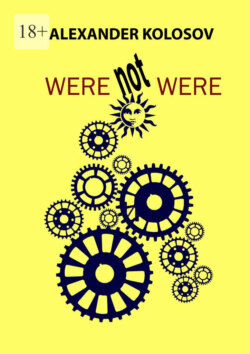Читать книгу Were not were - - Страница 26
In a desert
ОглавлениеMind is the ability to think. And, in fact, the ability to control your mind.
Apparently, initially the word mind meant “to strike with the mind” (time – blow, mind – science, skill) or, to paraphrase, the ability to attack and defend. Just a verbal designation of a tool with which a person was able to improve his ability to survive in this world. Like a knife or fire, thanks to which people have achieved dominance in the wild and created a new, artificial habitat.
Reason changed the original nature of man, forcing him to live in the second signal system, in the space of words and ideas. This freed man from the power of the body, from innate instincts, but not completely.
On the one hand, in the new reality for a person, only artificial, made things now have absolute value: something that is subject to exchange, and on the other hand, a person can enjoy only through the body, and it is the acquisition of pleasure that is the main meaning of individual human existence.
Through the measure of pleasure, the value of each life lived is determined. In societies where there is no opportunity to live for one’s own pleasure, the value of life for people drops to zero: in such societies, life is considered only as a burden or as a duty, but not as the highest good; from which it is necessary to get rid of without any regret.
Thanks to the mind, a person has found leisure, i.e. free time, and what is free time if not idleness – the source of all knowledge according to Aristotle, with the help of which people created knowledge and invented a culture, thanks to which they learned to multiply, preserve and transfer this knowledge to themselves through time and space. And many knowledge, as you know, only many sorrows.
Having gained knowledge about himself, man realized his natural imperfection. And moreover, thanks to him, he suddenly discovered that the mind, which he was so proud of throughout his history, is just a pure accident, a side effect of evolution, which nature initially did not even think about when it created man as a species: the mind is not embedded in the human biological program.
The faint spark of reason in each of us flares up into a living flame of an inquisitive mind only when we communicate with each other, exchanging ideas through language. Therefore, language and people are always the same: language binds us all together and knits itself from words. It is easy to extinguish the spark of reason in a person, but it is simply impossible to ignite it again: there are plenty of examples, from Mowgli children to old people who have lost their minds. At the same time, using the example of idiots, a person is clearly convinced that in order to feel happy, reason is absolutely not needed. Moreover, it is the mind that dooms a person to unbearable suffering with the mere thought of death. After all, of all living beings, only man is aware of his mortality, knows about it and cannot come to terms with it.
The mind in man refuses to accept the fact that he is finite. Hence the belief of people in the afterlife: an attempt by the mind to explain the purpose of its existence as a merger after death with an out-of-body, eternal and indestructible super-mind, of which the mind considers itself a part.
One can, of course, endlessly wonder and think about the starry sky above us and about the moral principles within us, but this does not negate the obvious and extremely annoying fact that the mind is just an accident. Just a cry in the wilderness that no one will ever hear.
